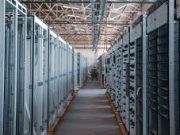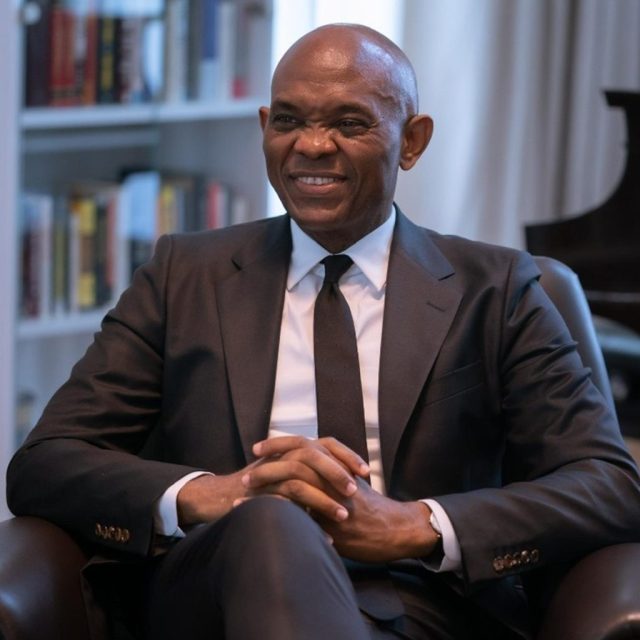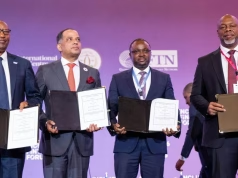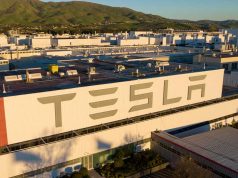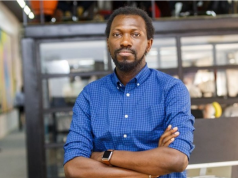Tony Elumelu, Founder and Chairman of Heirs Holdings, has issued a clarion call for Africa to harness its vast domestic capital potential by building trust, strengthening governance, and ensuring that artificial intelligence serves as a force for inclusion rather than inequality. Speaking at a high-level panel on “Boosting Productivity Growth in the Digital Age” during the 2025 Annual Meetings of the World Bank and International Monetary Fund (IMF) in Washington, D.C., Elumelu stressed that unlocking Africa’s estimated $4 trillion in dormant domestic capital requires more than investment—it demands accountability and institutional integrity.
“Africa has over $4 trillion in domestic capital, but we need trust, accountability, and sound governance to mobilize it effectively,” Elumelu said. “Digital inclusion is economic inclusion. Governments must create an enabling environment where private capital can serve the people.”
His remarks centered on the transformative potential of the digital age, particularly through AI, to accelerate Africa’s development across healthcare, agriculture, energy, and financial services. However, he warned that without deliberate intervention, the benefits of technology could bypass the majority, deepening inequality instead of reducing it.
For Elumelu, true Africa digital productivity goes beyond GDP metrics—it is measured in opportunity per person, not just output per worker. “When we talk about productivity today, it’s really about people,” he said. “It’s about creating conditions where individuals, especially young entrepreneurs, can thrive.”
He pointed to Africa’s history of technological leapfrogging—from mobile money to solar microgrids—as proof that innovation can flourish even amid constraints. But he emphasized that scaling AI-driven productivity will require what he called “combination therapy”: simultaneous investments in digital infrastructure, access to capital, regulatory reform, and human capital.
One of the most pressing barriers remains energy: over half of Africa’s population still lacks reliable electricity, undermining any meaningful adoption of AI or data-intensive technologies. “We face challenges with access to capital and infrastructure,” Elumelu noted. “Massive, deliberate investments are needed—not just in AI, but in the foundations that allow it to work.”
He highlighted the Tony Elumelu Foundation’s work in equipping African youth with digital tools through partnerships with global tech firms like Google. “Our young people are energetic, innovative, and ready—but too often constrained by systems that limit their participation,” he said. “Supporting them ensures AI improves global productivity without worsening inequality.”
Without inclusive policies, Elumelu warned, AI risks becoming a tool of exclusion—benefiting only those with access to power, connectivity, and education. “That’s why collaboration between governments, the private sector, and institutions like the IMF is essential—to democratize prosperity, not concentrate it.”
IMF Managing Director Kristalina Georgieva echoed these concerns, revealing the launch of an AI Preparedness Index showing a stark divide between advanced and developing economies. “The gap in AI readiness is very wide,” she said. “Advanced economies score high, while many developing countries lag far behind—especially in digital infrastructure and skills.”
She cited sobering statistics: 60% of jobs in advanced economies, 40% in emerging markets, and 26% in low-income nations will be affected by AI. While automation brings efficiency, it also threatens widespread job displacement unless new, high-quality roles are created—particularly for workers without advanced degrees.
“AI is transformative, but without proactive measures, it could make inequality worse,” Georgieva cautioned. “It’s a massive transformation of the labor market—a tsunami we are not yet prepared for.”
She urged governments to modernize education systems around lifelong learning, support SMEs in adopting digital tools, and implement pro-innovation regulations that protect against misuse without stifling progress. “We must mitigate downside risks—inequality, polarization, misuse—while enabling breakthroughs,” she said.
Both leaders concluded that Africa’s path to inclusive growth in the digital era depends on collaboration, ethical governance, and shared responsibility. For Africa digital productivity to become a reality, technology must be guided by purpose: to empower people, unlock potential, and ensure that no one is left behind in the race toward the future.
Follow us on Instagram.
https://www.instagram.com/businessnewsng?igsh=ZXpweTdjOGF1ZXdu











